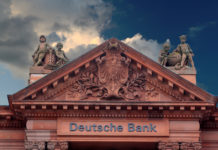For years, investors have lamented the all-profit nature of the financial industry. Whether or not your investments make money, your advisor charges you a fee. In other words, even if the company loses your money, you owe a fee for their ‘services.’ What other business operates this way?
Recently, investment firms such as TD Ameritrade Inc. and Charles Schwab Corporation decided to change that by offering a full refund of fees to customers whose investments depreciate in value. But no legislation or policy addition led to this change. This was a business decision, not a requirement. So what’s in it for these companies?
Regulators approved a plan under which TD Ameritrade investors would receive their money back on all applicable fees in their Amerivest-managed accounts—between 0.3% and 1.25% annually—if those accounts posted negative returns for two consecutive quarters.
“It’s a program by which we hope more people will try Amerivest if we remove one level of doubt or concern,” said spokesman Joseph A. Giannone.
On the surface, it’s brilliant—entice consumers by offering a layer of protection against losses. But let’s look a little closer. The stipulation of two consecutive losing quarters means you’re looking at a period of six months. While fees certainly take a chunk of any account, if you lose 10-15% over any six-month period, how much reassurance does a 1% reimbursement of fees offer?
Dig a little deeper and you’ll find that nothing is guaranteed. TD Ameritrade’s competitor, Charles Schwab Corporation, unveiled a program late in 2013 aimed at ‘guaranteeing accountability’ that allowed some clients to request a refund “if, for any reason, they are not happy.” As of last week, Schwab reported receiving 550 requests for refunds—less than 1% of all eligible accounts. Either they have VERY satisfied customers, or savvy consumers have deduced that the rebate request is futile. (No information was available on how many of the requested refunds were actually fulfilled.)
Lastly, many industry followers are calling into question the consistency of rules and regulations enforcement on Capitol Hill. Many fear that advisors will pull out all the stops to avoid those consecutive losing quarters that would trigger a potential refund. This means adjusting your portfolio, which leads to greater—and more frequent—transaction fees. But as long as the ‘new’ investment doesn’t lose money, the advisor’s upheld his end of this deal. (Notice there’s no promise or even implication of making money.)
Before you run out to Wall Street and create an account that you’ve been told is ‘guarded’ against losses, consider this: these institutions have thrived for years in an environment that offers them—not you—guarantees. Regardless of performance, they’re guaranteed a percentage of your account each year. Why would brokerages voluntarily sacrifice this perk?













